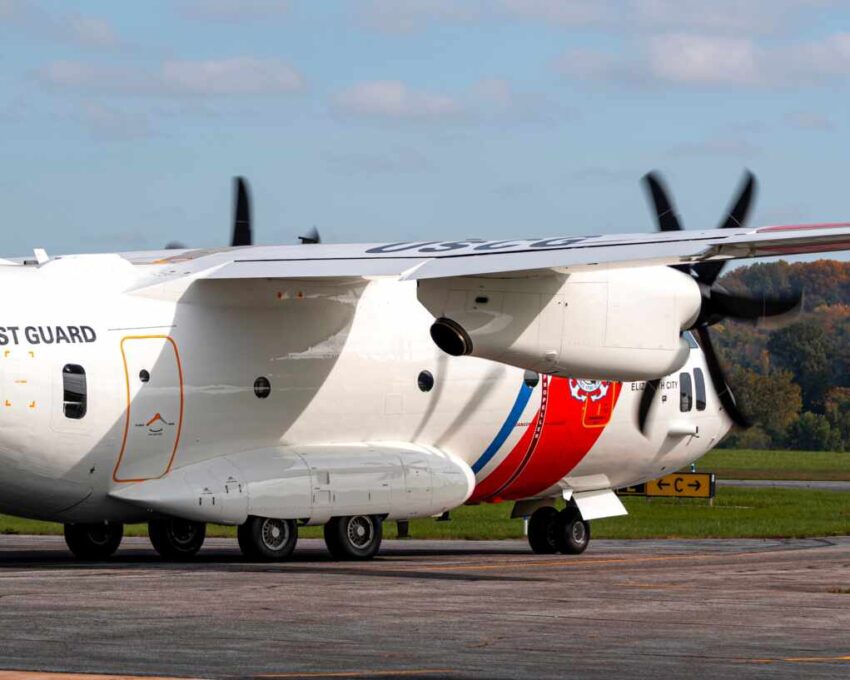When disaster strikes at sea, it’s the brave crews of the US Coast Guard Air Station Atlantic City who fly into danger, embodying true American heroism.
At a Glance
- The Coast Guard Air Station Atlantic City responds to a surge in emergencies during the summer boating season.
- The station’s helicopter crews face unpredictable, high-stakes missions including boat crashes and medical evacuations.
- The professionalism and adaptability of the crew are pivotal in responding to emergencies, even amidst prank calls and rapid mission changes.
- Established in 1998, the station has become one of the busiest in the US due to increased maritime traffic in the Northeast.
Inside the Rescue Operations
The US Coast Guard’s Air Station Atlantic City is the unsung hero of the Northeast coastline, tasked with saving lives across vast and often treacherous waters. As summer 2025 kicks into high gear, the station’s helicopter crews are busier than ever, responding to a wave of emergencies. These range from boat crashes and jet ski accidents to urgent medical evacuations. With the unpredictability of the ocean, every mission is a race against time and the elements.
Inside ‘busy season’ for hero local Coast Guard crew – from deadly boat accidents to trapped duck hunters https://t.co/vCh5kYXb4G pic.twitter.com/cHGPiX4wPy
— New York Post Metro (@nypmetro) July 28, 2025
This year, the Air Station has been on high alert since post-Memorial Day, with incidents skyrocketing as recreational boating activities increase. The crew’s ability to adapt in real time, often while already airborne, highlights the sheer unpredictability and intensity of their work. May 2025 saw them heroically diverted from a Fleet Week demonstration to conduct an offshore rescue, exemplifying their dedication and readiness to face any challenge at a moment’s notice.
Challenges and Triumphs
Operating a fleet of MH-65 Dolphin helicopters, the Air Station covers a crucial area from Long Island Sound to Chesapeake Bay. These aircraft are the backbone of their rapid response capabilities, enabling them to tackle missions ranging from routine rescues to high-profile disasters. In March 2024, the crew played a vital role in the Baltimore Key Bridge collapse, showcasing their ability to handle large-scale emergencies.
Despite the life-saving nature of their work, the crew faces numerous challenges. Prank calls can disrupt operations, while the rapid pace of missions demands constant vigilance and adaptability. Yet, the dedication and professionalism of the team—comprising pilots, rescue swimmers, and flight mechanics—shine through. Their stories of courage and resilience are a testament to their commitment to protecting American lives.
The Broader Impact
The Coast Guard’s efforts have far-reaching implications, both immediate and long-term. In the short term, their rapid responses save lives and reduce injuries, providing much-needed reassurance to coastal communities and families. Over the longer term, their operations bolster public trust in federal capabilities, underscoring the importance of resource allocation and training to meet growing demands.
The economic impact of the Coast Guard’s operations cannot be overstated. By minimizing loss of life and property, they reduce insurance and healthcare costs. Socially, their presence strengthens community resilience and fosters a culture of public safety. Politically, it highlights the federal commitment to maritime safety and disaster response, an assurance to American citizens that their government is prepared to act in times of crisis.
The Unwavering Commitment
The Air Station remains a critical component of maritime safety in the Northeast, with crews on 24/7 standby ready to tackle any emergency. Their commitment to training and readiness is relentless, even as they face an increasing number of real-world emergencies. For the recreational boaters, commercial mariners, and coastal communities they protect, the Air Station stands as a symbol of American resolve and dedication.
As recreational boating continues to rise and weather conditions become increasingly unpredictable, the demand for skilled, rapid response teams like those at Air Station Atlantic City will only grow. Their ability to maintain high operational standards amidst rising incident rates and false alarms is a testament to their professionalism and the critical role they play in ensuring the safety of America’s waters.
Click this link for the original source of this article.
Author: Editor
This content is courtesy of, and owned and copyrighted by, https://conservativeamericatoday.com and its author. This content is made available by use of the public RSS feed offered by the host site and is used for educational purposes only. If you are the author or represent the host site and would like this content removed now and in the future, please contact USSANews.com using the email address in the Contact page found in the website menu.





